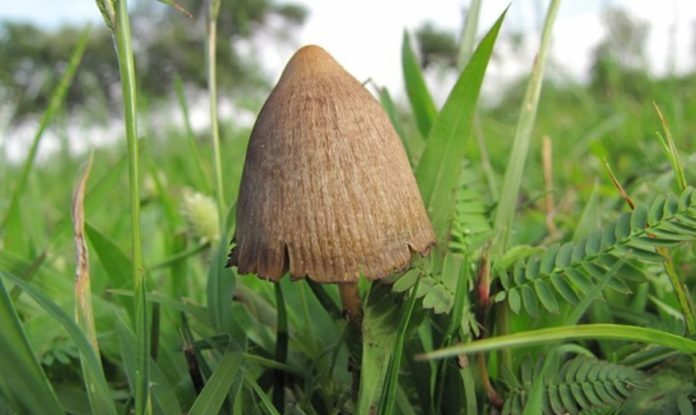Even a single dose of Psilocybin can significantly reduce anxiety in patients. This may be due to its effect on serotonin 5-HT2A receptors
A single injection of psilocybin increased the number of synapses in pig brains and decreased the number of serotonin 5-HT 2A receptors, according to a study published in the International Journal of Molecular Sciences.
Autoradiographic studies of the brain have shown results in the hippocampus and prefrontal cortex of animals that are associated with the generation of emotions. This result may be related to the antidepressant effect of psilocybin.
- Scientists in Fear of This New Predator From Red Sea Eating Native Species in Mediterranean
- Does This Mean We Stopped Being Animal and Started Being Human Due to ‘Copy Paste’ Errors?
- The One Lifestyle Choice That Could Reduce Your Heart Disease Risk By More Than 22%
- Aging: This Is What Happens Inside Your Body Right After Exercise
- Immune-Boosting Drink that Mimics Fasting to Reduce Fat – Scientists ‘Were Surprised’ By New Findings
Clinical studies show psilocybin has a therapeutic effect in depressive and anxiety disorders. Even a single dose of psilocybin can significantly reduce anxiety in patients. Perhaps this is due to its effect on serotonin receptors 5-HT 2A: the molecule is similar to the molecule of serotonin and is able to activate its receptors.
At the same time, in patients with depression, there is a decrease in the number of interneuronal contacts (synapses) in areas of the brain associated with emotions: the hippocampus and the prefrontal cortex. This occurs as a result of suppression of the activity of synaptic proteins and genes in these areas, therefore, for a long-term therapeutic effect, it is necessary not only to replace serotonin but also to restore their work and increase the number of synapses.
Researchers from the University of Copenhagen, led by Nakul Ravi Raval, have suggested that the therapeutic effect of psilocybin may be related to the restoration of the number of synapses in the hippocampus and prefrontal cortex. To see if this substance had such properties, biologists once injected a hallucinogenic dose of psilocybin to 24 pigs, and then after one and seven days studied their brains.
To count the number of synapses, the scientists used autoradiography: they treated pig brains with radioactive ligands that selectively bind to the synaptic protein SV2A and make it emit. The number of synapses was judged by the emission from SV2A. The number of serotonin 5-HT 2A receptors was calculated in the same way: it was shown that after their activation, the cell “hides” the receptors from the membrane into the cytoplasmic vesicles, where they can be digested and broken down. That is, the decrease in the number of receptors may correspond to their recent activation.
- Scientists in Fear of This New Predator From Red Sea Eating Native Species in Mediterranean
- Does This Mean We Stopped Being Animal and Started Being Human Due to ‘Copy Paste’ Errors?
- The One Lifestyle Choice That Could Reduce Your Heart Disease Risk By More Than 22%
- Aging: This Is What Happens Inside Your Body Right After Exercise
- Immune-Boosting Drink that Mimics Fasting to Reduce Fat – Scientists ‘Were Surprised’ By New Findings
The amount of SV2A protein (and, as a consequence, synapses) in the hippocampus was higher than in the control group, both the next day and one week after the psilocybin injection (p <0.05). In the prefrontal cortex, only the difference was significant on the seventh day after injection (p <0.0001). In both departments, the number of 5-HT 2A receptors decreased, but only on the first day (p <0.05). In this case, the number of functionally active receptors decreased more strongly.
These results suggest that psilocybin is involved in neuroplasticity and promotes synapse following activation of serotonin receptors. Now biologists have to figure out which proteins are involved in this process in order to understand the antidepressant properties of hallucinogens.
